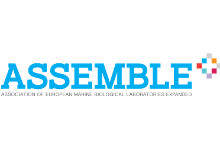Summary
Sponges (phylum Porifera) are one of the most ancient extant multicellular animals and can provide valuable insights into the origin and early evolution of Metazoa. As sessile filter feeders, they are capable of removing microorganisms from the surrounding water by pumping many thousands of litres of water through their aquiferous system within the mesohyl matrix. From an ecological perspective, marine sponges provide a protected and nutrient-rich niche where extensive interactions among the diverse microbial populations are fostered and probably inevitable, allowing the establishment of microbial within the holobiont body. Sponges can benefit from nutrition supply, transport of waste products and active metabolites, chemical defence against predators and biofouling, and contribution to mechanical structure. Consequently, the microbial colonization of sponges often plays an important role in the development and evolution of the holobiont.
Objectives
To date, studies on the association between microbial communities and Antarctic sponges have only rarely performed, mainly addressing to bacterial cultivable symbionts and rarely to the whole prokaryotic community. Information on Antarctic sponge-associated communities obtained by applying advanced molecular methods derive from specimens collected from Mc Murdo Sound (Ross Sea), Fildes Bay (King George Island, South Shetlands, Antarctica) or around the South Shetland Islands. The project SPRYNTT aims at comparing, in a biogeographic view, the prokaryotic communities associated with sponge species that are commonly found in sublittoral waters around Rothera Research station (Adelaide Island) and Thetys Bay (Terra Nova Bay), thus deepening our yet scant knowledge on the prokaryotes-host specificity in such extreme environment. Focus species are mainly Dendrilla antarctica and Mycale acerata. Work is in progress.
Project Partners
• NERC-BAS (UK)
Other informations
• ASSEMBLE Plus







 Title: Comparative study on Sponge-associated ProkarYotic commuNities in RoThera (Adelaide Island, Antarctic Peninsula) and Thetys Bay (Terra Nova Bay, Ross Sea) sub-littoral zones
Title: Comparative study on Sponge-associated ProkarYotic commuNities in RoThera (Adelaide Island, Antarctic Peninsula) and Thetys Bay (Terra Nova Bay, Ross Sea) sub-littoral zones 


